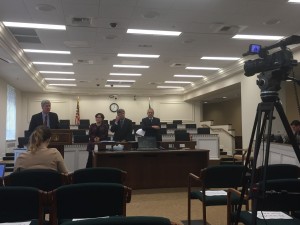Today, February 24th, marks the 47th day of session and the House of Origin Fiscal Cutoff. For those of you unfamiliar with the legislative session schedule, cutoff dates are deadlines placed throughout session. Bills that have not made sufficient progress at the cutoff date are considered “dead.” Today’s cutoff date means that all bills must be passed out of their fiscal committees by the close of business. Bills that were not approved by this deadline have “died” and will not be considered for the rest of the legislative session. The only exception to cutoff dates are for bills that are necessary to implement the budget, or NTIB.
Our next cutoff date is March 8th which is the last day for the House to consider House bills and for the Senate to consider Senate bills.
Here are some bills that impact Evergreen that have passed the policy cutoff and are awaiting action by the fiscal committees:
- HB 1440: Establishes a Student Loan Bill of Rights and creates a Student Education Loan Ombuds to provide assistance to those with education loans. Requires the Washington State Institute for Public Policy to conduct a study on refinancing student loans.
- HB 1561: Creates an Open Educational Resource Grant Pilot Program. Required the Washington State Institute of Public Policy conduct a study on the costs of textbooks and on the use of OER.
- SB 5022/HB 1057: Requires that students who have obtained student loans be notified of student loan amounts, payoff amounts and monthly repayments.
- SB 5100: Directs each institution of higher education to take reasonable steps to ensure each student participates in a live financial literacy seminar.
- SB 5525/HB 1737: Requires four-year institutions to hire mental health counselors to work with military personnel, veterans, and their families.
- SB 5592/HB 1433: Decoupling services and activities fees from tuition.
- SB 5684: Creates the Higher Education Infrastructure Program by leveraging state spending on capital projects in high-demand fields of study in partnership with Washington employers.
The 2017 Session Cutoff Calendar can be found here.



